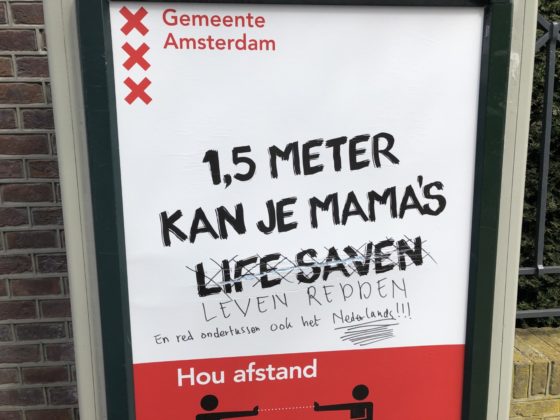All eyes on Mark Rutte ahead of potential Dutch exit strategy


Dutch prime minister Mark Rutte is likely to face tough questioning when he addresses the media at 7pm on Wednesday evening to outline the next stage in the government’s strategy to stop the spread of coronavirus and kick-start the economy.
Sources in The Hague say the government has drawn up a road map which makes it clear which sectors can expect a more relaxed approach to the anti-coronavirus regulations and according to what timeline.
Rutte is also widely expected to announce that secondary schools will reopen from June 1 and that cafe terraces can open – as long as the 1.5 metre rule is applied.
The aim of the road map is to offer perspective to people and to make it clear that changes to the rules are only possible if people stick to the 1.5 metre guidelines and continue to stay home as much as possible, insiders say. Any increase in the number of coronavirus patients must also be as low as possible to keep the transmission rate well below 1.
Sources have told broadcaster NOS that most sectors are not being given a date because it is still too early, although hairdressing salons are tipped for an early opening.
The government’s Outbreak Management Team met on Monday and has, according to NOS, agreed that professions which involve human contact can be resumed, if proper precautions are taken.
Masks
According to the Volkskrant, officials have also been discussing the possible introduction of face masks in certain situations. Ministers and the public health body RIVM have been opposed to making masks compulsory, partly because they fear people could stop keeping to the 1.5 metre rule if they are wearing them.
However, this position is becoming harder to stick to, given that the use of masks is being encouraged in Belgium and Germany. KLM has also said masks will be compulsory on all flights from next week and Dutch public transport providers are also pressuring for change.
Contact tracing
Another key issue in lifting the Dutch lockdown is that of expanding testing and setting up systems to track and trace the contacts of people who have been found to have the virus.
Health minister Hugo de Jonge has insisted local health boards are ready to roll out an active programme of contact tracing, in addition to the passive tracing which is already being done.
Extra capacity for tracing contacts is a key demand of the OMT for relaxing some of the coronavirus rules and this was made a condition of the decision to reopen primary schools and childcare from next Monday.
Testing
Rutte will also face questions about the Dutch strategy for testing. Two weeks ago, ministers said that testing is being ramped up to 17,500 a day and could go as high as 30,000 tests a day – but it is very unclear if that total is any where near being reached.
The cabinet has blamed the lack of testing on a shortage of materials, but according to the Volkskrant, Dutch labs say they have enough chemicals and other equipment to carry out more tests than are currently being done.
Experts say that the way to interrupt a potential second surge of the virus after lockdowns are partially lifted is by testing, contract tracing and then isolating and quarantining people who are infected to break the chain of transmission.
‘You cannot completely eliminate the virus, but if we get close to it, we can open up the economy again and stop bankruptcies,’ health economist Xander Koolman told the Volkskrant. ‘And by tracing contacts, we can keep an eye on whether it is coming back.’
Thank you for donating to DutchNews.nl.
We could not provide the Dutch News service, and keep it free of charge, without the generous support of our readers. Your donations allow us to report on issues you tell us matter, and provide you with a summary of the most important Dutch news each day.
Make a donation